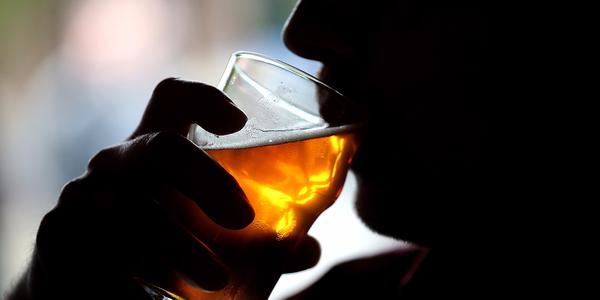A: Let’s start with a basic fact when it comes to drinking: What goes in eventually comes out.
Advertising PolicyCleveland Clinic is a non-profit academic medical center. Advertising on our site helps support our mission. We do not endorse non-Cleveland Clinic products or services.Policy
So when you’re tipping back glasses of your favorite adult beverage… well, you can only hold in so much. Your body’s reservoir is a pear-sized bladder, after all, not a 5-gallon bucket. Eventually, you have to empty.
The question, though, is when? This is where the myth about a biological barrier known as “the seal” enters the discussion.
The legendary seal is celebrated as a water-tight cap that locks down your bladder. When fully intact, it keeps you from heading to the bathroom to pee. (This ensures that you never miss any fun.)
So what happens when you break that so-called seal and answer nature’s call? Well, you’ve now opened the floodgates and can expect to spend the rest of the night making tracks to the restroom.

In the neon glow of a weekend night, the logic behind this theory seems pretty solid. It doesn’t hold up quite as well under closer (and sober) examination.
Advertising PolicyDrinking mass quantities of any liquid will inevitably send you to the bathroom, but beer, booze and wine amplify the effect. The reason? Alcohol is a diuretic, which – in the simplest of terms – increases the production of urine.
Breaking it down more, alcohol suppresses the release of an antidiuretic hormone (ADH) called vasopressin. This ADH tells your kidneys to absorb guzzled fluids and distribute to the rest of your body.
But when your brain slows down ADH production during happy hour, the drinks passing by your lips take a more direct route to your bladder. Your bladder only holds about 300 to 400 milliliters of fluid, which is roughly 12 ounces.
It doesn’t take long to exceed your bladder’s capacity. Pressure builds at this point, resulting in the urge to pee. Alcohol also can irritate your bladder, increasing the feeling that you need to tinkle.
So why does it seem like your first bathroom break opens the door to so many return trips? That’s just your body catching up with all the drinks you’ve tipped back during the evening. (Remember the formula: Fluid in = fluid out.)
Advertising PolicyHolding back on bathroom visits isn’t a good idea, either. Repeatedly preventing the natural flow of things can lead to broader issues, such as urinary tract infections.
If you want to go to the bathroom less during a night out, there’s only one proven way to reduce your trips: drink less. Otherwise, listen to your body and empty your tank before any awkward dancing starts.
Because, to be clear, there is no seal that you’re protecting.
— UrologistPetar Bajic, MD









